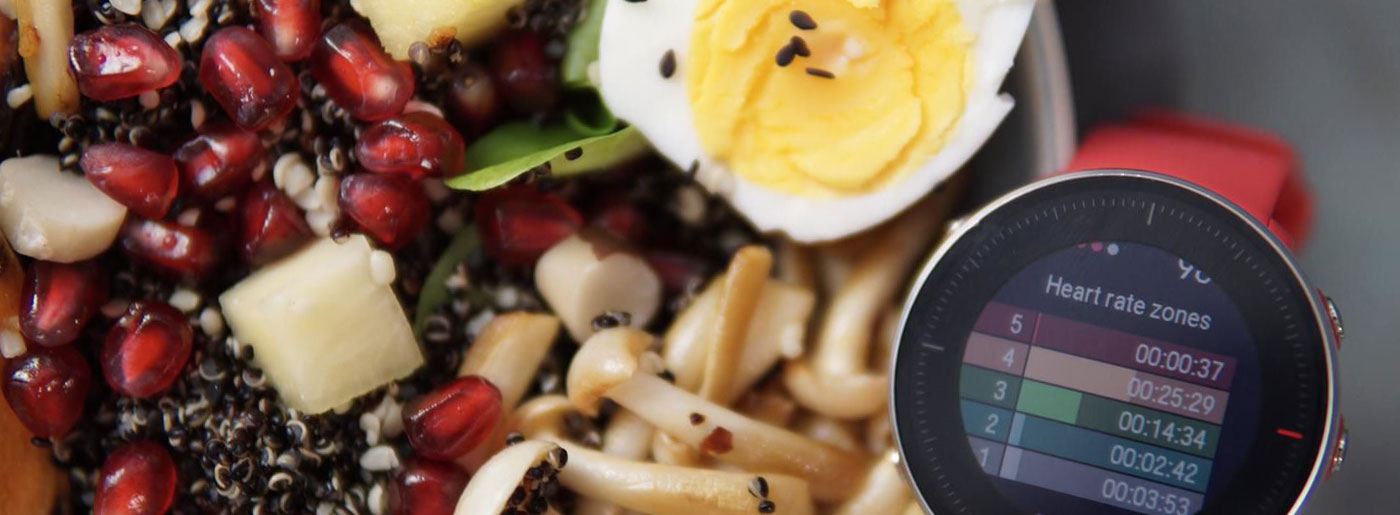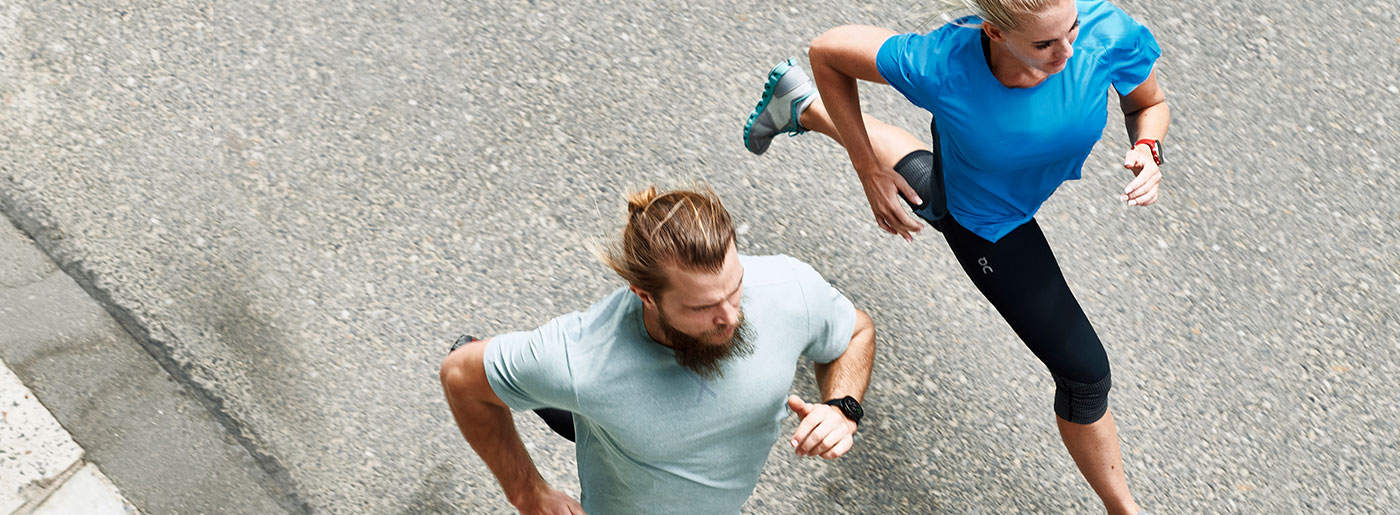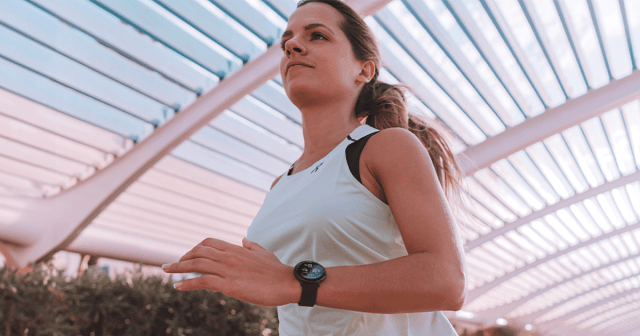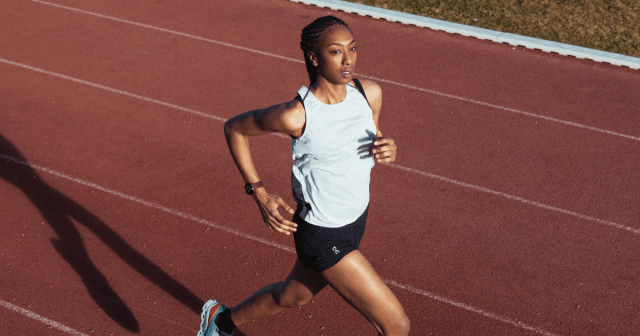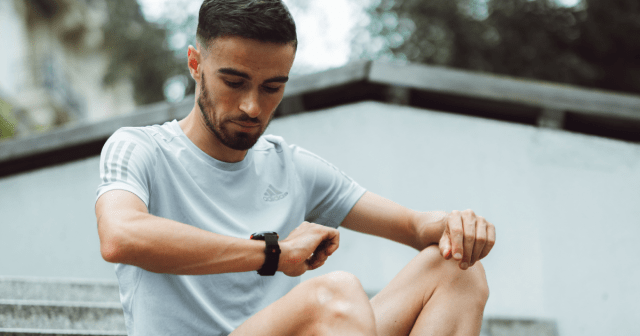I’ve long supported the mantra “eating is training”. As an athlete it’s important that you eat to support your training sessions and the recovery process in between. One of the most frequently asked questions in the endurance sports world is “What to eat before running?”
The confusion (and answer) lies somewhere in between running on empty and running after a big meal.
The confusion (and answer) lies somewhere in between running on empty and running after a big meal. Eat too much, and your stomach revolts when you turn up the pace. Eat too little, and you falter, weak from hunger, through your hard intervals.
Luckily, getting it “just right” isn’t impossible.
Of course, everyone is different and what may work for some, may not work for you. That’s why it’s imperative that you treat yourself as your own experiment and learn what works best for you.
While the answer to the question “What to eat before running?” will vary between individuals and the activity to be performed, there are some basic guidelines and recommendations you can follow to help nail that pre-run nutrition.
Here are the three key questions to help you decide what to eat before running.
1. What kind of running are you about to do?
Not all workouts are created equal so consider these before grabbing that pre-run fuel:
The volume of the training cycle
Getting in those pre-workout carbs have a more significant impact for the athlete who is in a larger training cycle versus a rested or tapered state. When you’re consistently training at large volumes and with a higher intensity it’s harder to keep up with restocking glycogen stores.
Training intensity & Duration
When working at a higher heart rate, the body will burn glucose at a higher rate meaning you’ll need more fuel to maintain your workout!
So, when you’re heading into a day with more intensity such as a tempo run or a super hilly trail run, starting off the session with adequate glycogen stores is extra crucial. The longer the run, the more fuel you’ll need beforehand.
- If your run is under 45 minutes you most likely won’t need anything at all (especially if you’ve eaten somewhat recently).
- If the run is 60-90 minutes you will most likely need a small amount of food to get you going.
- If the run is over 90 minutes you should absolutely plan to eat something before heading out.
2. How much before running are you about to eat or drink?
Eating before your run will prevent hunger and optimize glycogen stores, delaying mental and muscle fatigue. This pre-run fueling time frame should be approached as two parts.
The first 2-4 hours from the start of your workout and the second being 30-60 minutes before your training session.
A high carbohydrate meal before a workout has been shown to increase oxidation of carbohydrates, utilization of muscle glycogen, and improvements in performance in aerobic exercise. All things endurance athletes need to hit their longer training session!
Note: this meal should have some protein to keep you satisfied and promote muscle recovery. Try to limit the fat, especially if eating under 2 hours pre-workout to avoid GI distress!
What to eat before running: 2-4 hours pre-workout
Water – 12-20oz
Pancakes with cashew butter and a light drizzle of honey.
Oatmeal with some fruit and walnuts.
A turkey sandwich on sourdough bread with avocado and a piece of fruit.
1 cup of quinoa with chicken, spinach, and a few slices of zucchini.
Whole grain toast with peanut butter and jelly or honey.
Picky Bar or equivalent sports bar with about 200 calories
What to eat before running: 30-60 minutes pre-workout
Hydration Beverage 8-16oz **
Dates or Figs
small banana
2-4 fig newtons
A toaster waffle with a tablespoon of maple syrup
Rice cake with jelly or jam
1/2-1 cup tart cherry juice
3. Do you need to eat at all before running?
Beyond food, another important habit for many athletes should be to drink a moderate to high sodium solution like SOS Hydration or Skratch Labs’ Sport Hydration Mix right before very hard and long workouts in moderate to high heat, when getting adequate hydration might be a problem.
Drinking a sodium solution, right before exercising in the heat, can lower blood pressure and create extra space by expanding blood vessels that are dilating to bring hot blood to the skin to keep you cool.
But, be careful. Drinking too much at the onset of exercise if it’s cool or when the exercise intensity is low will likely just make you need to pee 20-30 minutes into your workout.
In some cases, if the run you’re about to do isn’t too hard or long, you don’t have to eat before running.
In some cases, if the run you’re about to do isn’t too hard or long, you don’t have to eat before running – especially in the morning when you’ve just gotten up.
The unique thing about sleep is that it’s essentially an overnight fast that re-adjusts the body’s hormonal and metabolic environment, keeping blood sugar steady despite a lack of food. You can take advantage of this in the morning by simply getting up and starting your workout, then having breakfast afterward.
This works especially well for lower intensity aerobic workouts where your primary fuel source is fat. So, if it’s early, the intensity isn’t high or the duration isn’t that long, and you’ve gotten plenty of sleep, you don’t have to think what to eat before running – just get up and go.
Please note that the information provided in the Polar Blog articles cannot replace individual advice from health professionals or physicians. Please consult your physician before starting a new fitness program.
If you liked this post, don’t forget to share so that others can find it, too.
Or give it a thumbs up!
I like this article
Please note that the information provided in the Polar Blog articles cannot replace individual advice from health professionals. Please consult your physician before starting a new fitness program.
